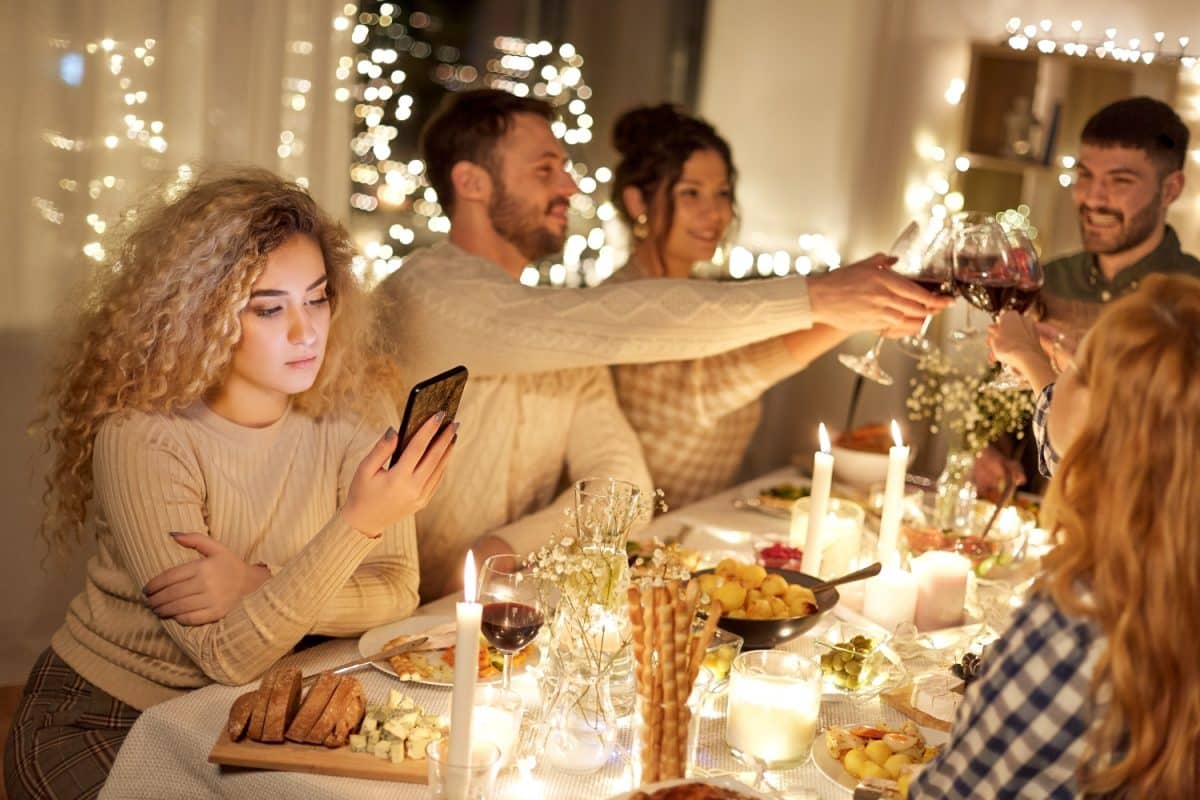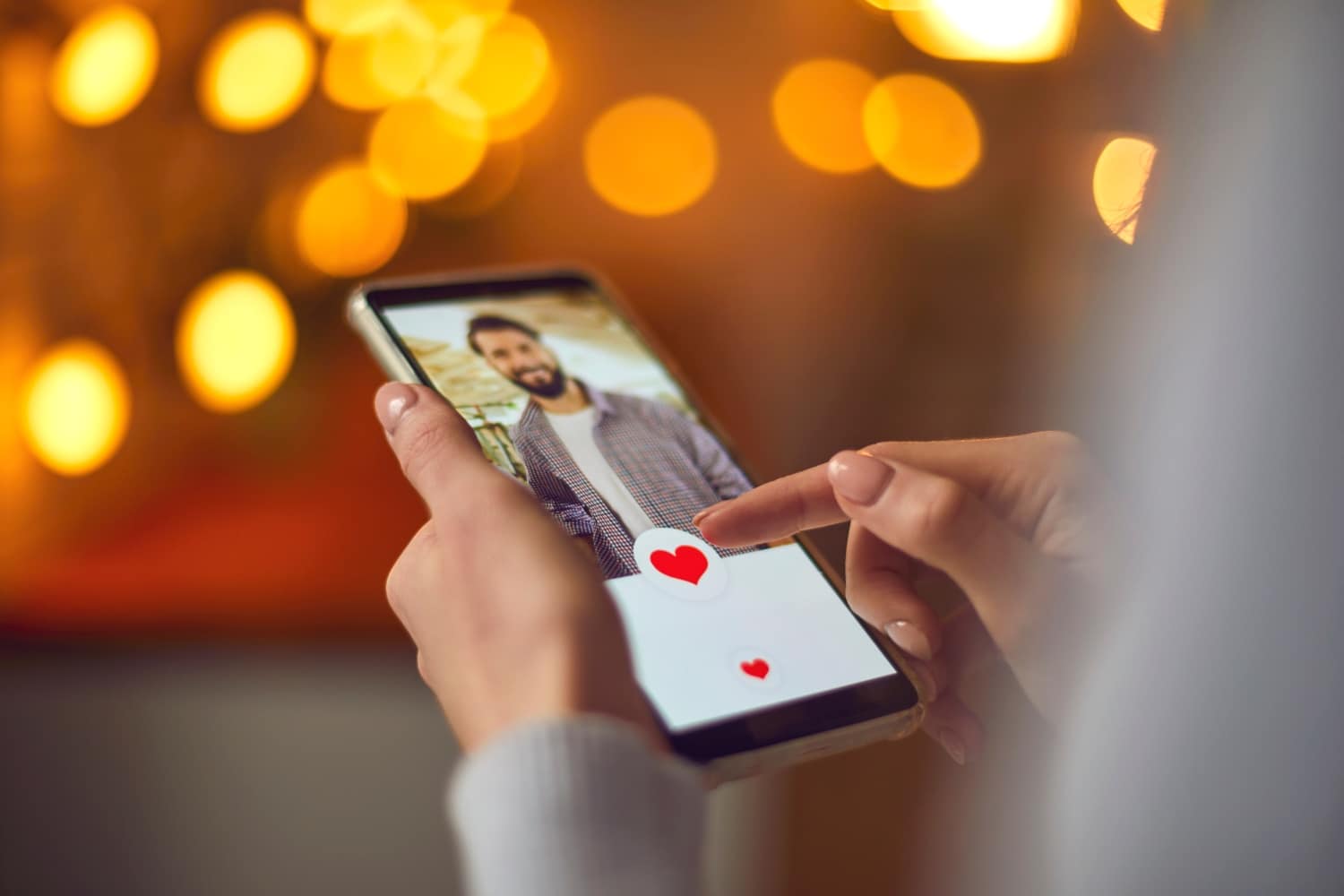There are hundreds of dating apps out there. Whether it be Tinder, Bumble, Hinge, Happn, Baboo or Grindr, there really is something for every cross-section of society and their particular desire to find their version of love.
Dating apps have become not only an integral part of daily life but also a real issue for many individuals, especially those struggling with addiction – specifically love addiction.
Social media and dating apps feed into our human desire for connection, and it’s easy to become hooked. Individuals can quickly become addicted as these apps provide a(n often) false sense of connection and become a breeding ground for unhealthy behaviour – all of which can have a negative impact on mental health.
In this blog post, we’ll look at how taking a break from dating apps can help improve mental health. We’ll also examine some of the tactics you can use to help you switch off from these platforms and learn how to reclaim your life and focus on building healthier and more fulfilling relationships.
Love addiction and online dating
The term “love addiction” describes a pattern of behaviour in which an individual becomes attached to the idea of being in love and its emotional highs.
Love addiction can manifest in many forms, including:
- A constant need to use dating apps
- Reliance on the attention of strangers for self-worth or validation
- Feelings of despair or emptiness when not in a relationship
- A lack of purpose when not actively seeking out romantic connections
The problem of love addiction can quickly develop when an individual relies too heavily on digital dating platforms.
A false sense of connection
While dating apps may provide users with the sense of connection they’re looking for, this feeling can be deceptive. Although algorithms can match individuals with others who share their interests and preferences, technology can never replace physical human interaction. In fact, excessive reliance on dating apps may ultimately lead to emotional isolation.
When individuals become dependent on digital communication, they may neglect their real-world relationships and miss out on opportunities for genuine connection.
Studies have suggested that heavy social media use and online interactions can increase feelings of loneliness and depression. The constant scrolling and swiping can become addictive, leading individuals to believe that they are making progress in their social lives when, in reality, they’re actually withdrawing from essential face-to-face interactions.
Engaging in the present moment, practising active listening and focusing on building meaningful connections takes effort, but the reward is the richness of real human connection that can never be replaced by technology.
Unhealthy behaviours on dating apps

While dating apps can provide a platform for meeting people from diverse backgrounds and cultures, they can also encourage unhealthy behaviours. One of these behaviours is ghosting, where a person suddenly cuts off all communication without warning. This is often hurtful and can lead to anxiety and low self-esteem.
Another negative behaviour is catfishing, where individuals pretend to be someone they’re not, often to deceive or manipulate others. This can be devastating for those on the other end of the deception.
The trend of “micro-cheating” is also prevalent on dating apps. This is where individuals engage in small acts of infidelity that can cause feelings of insecurity among partners.
These behaviours often stem from psychological reasons such as fear of commitment, lack of self-esteem or a need for validation. They can have negative impacts on our mental health and sense of self-worth. Therefore, it’s important to recognise these behaviours and understand their root causes.
The benefits of a dating app digital detox
If you’re struggling to find the connections you’re looking for, or have been on the receiving end of these harmful behaviours, it goes without saying that you could benefit from a dating app digital detox.
The benefits of taking a break from dating apps are plentiful. Here is just a handful:
1) Re-evaluate your relationship with technology
Firstly, a dating app detox can provide an opportunity for individuals to re-evaluate their use of technology and, most importantly, consider whether the time spent daily on dating apps is constructive or counterproductive.
It’s an opportunity to reflect on whether dating apps are preventing you from engaging in other more meaningful activities such as hobbies, work or socialising.
We’re here to help
Let’s talk
Call now for a totally confidential, no-obligation conversation with one of our professionals.
2) Gain a new perspective on relationships
For those struggling with love addiction, a break from dating apps can help them gain perspective on their relationships and learn to regulate their emotions outside the digital world.
While dating apps can provide a convenient and easy way to meet new people, investing time and energy in building connections with others in the real world can also have numerous benefits.
Meeting people offline can lead to personal growth and development, as well as opportunities to experience new things and learn from others.
3) Improve your emotional and mental health
Those who undergo a digital detox often report feeling less anxious and more present in their daily lives. Investing in real-world connections can also be a way to break free from the cycle of love addiction and promote social and emotional health.
Research shows that high-quality social connections are linked to increased well-being and can even help combat depression and anxiety. While digital connections can be convenient, there’s no substitute for face-to-face interaction when it comes to building strong and lasting relationships.
4) Improve productivity

A digital detox from dating apps can bring a newfound balance to your daily routine, which can have massive implications for your overall productivity.
By implementing a digital detox, you can free up several hours of your day that you can invest elsewhere.
How to disconnect from online dating apps
A digital detox is not about cutting out all technology but rather finding a healthy balance.
If you feel that you need a break from dating apps, there are many ways to disconnect and reduce screen time. Here are some practical tips to help you take a digital detox:
1. Set boundaries for yourself
Establish limits on your phone or internet usage and stick to them. For example, turn off notifications, delete problematic apps or disconnect from the internet outside work hours. Ironically, several apps can help you monitor the amount of time you spend on specific platforms and even lock you out of them once you’ve spent your allocated time for the day.
2. Commit time to your hobbies
One way to make a digital detox easier is to make sure you have something else to focus your time on. This could be an opportunity to dedicate more time to things like exercise, reading or spending time with loved ones.
3. Try new ways to meet people
While it seems like everyone meets online these days, there are still many other ways to connect with others. Explore new hobbies, activities or groups in your community, not only to meet new people but also to experience new things. For example, you could join a fitness class, book club or cooking group, attend events, volunteer, or simply strike up conversations with people in your daily life.
These activities can expand your social circle and foster connections based on common interests and shared experiences, which can be more meaningful than surface-level connections made on dating apps.
4. Connect with nature
Spend time in nature by walking or hiking, finding a place to meditate or read, or practising yoga outside. It may sound like a cliché, but nature can help you relax, reduce stress and give you mental clarity.
By disconnecting from dating apps, you can invest more time and energy in real-world connections and activities that bring joy and fulfilment to your life.
Seek professional help for dating app and love addiction

As we’ve seen, excessive use and reliance on dating apps for our social and emotional needs can lead to a cycle of addictive behaviour that ultimately harms our mental health and well-being.
Taking a break from dating apps and investing in real-world connections can help break this cycle. By disconnecting from technology, we can create more meaningful and authentic relationships with others while opening ourselves up to increased productivity, balance and fulfilment. Let’s not forget that our technology use should be in service of our lives, not the other way around.
While disconnecting from dating apps can be a practical and self-care-oriented first step, those really struggling with love addiction or other forms of addiction could benefit from professional help. Depending on the severity of the addiction, different levels of help are available.
Luxury rehab centres such as White River Manor offer a more comprehensive approach. Our Dependency Program combines various therapeutic approaches, medical treatment and holistic practices such as mindfulness, yoga and meditation.
Our trained and committed therapists can provide guidance and counselling to address the underlying issues contributing to your addiction and help you to develop coping mechanisms to manage your triggers.
Admitting you need help is always the first step on the road to recovery. With the right help and support, you can overcome addiction and develop healthier online and offline relationships.
To find out more about our personalised addiction treatment program, don’t hesitate to get in touch.







